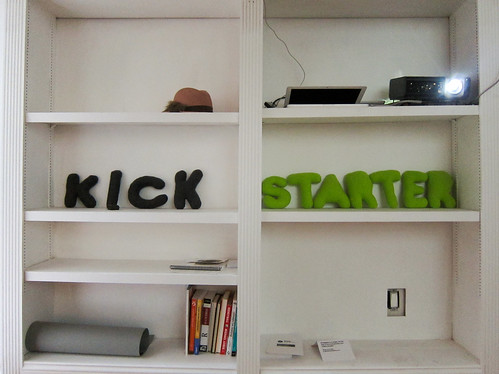In Miller's book, he explains how the literacy boom of the 18th century brought about a push for standardized English grammar and practices because there were so many people who weren't educated in the narrowly defined acceptable way of speaking who were suddenly using the language.
In order to maintain the hegemonic power structure that comes along with controlling the way that language is used, new grammar books and dictionaries began to flood the market in order to make sure that these new language users learned the "proper" way to do it. It just so happened that the "proper" way was the way that the people with money used the language. Seriously. They created these grammar books through an inductive process where they went and saw what the "right" people were doing when they wrote and then created the grammar rules from that usage. They could just as easily have taken a look at what the "uneducated" people were doing and made those the rules. It's really very arbitrary.

Within this discussion, Miller explains that:
the reading public was a consumer society that was taught to concentrate its attention on the reception rather than the production of discourse. The subordination of composition to criticism could be explained by the simple empirical fact that it took much longer to teach the public to write than to read.
Setting up a consuming (reading) public vs. a producing (writing) public got me thinking about the ways that our tools shape that relationship.
When the tools of production are scarce, there will obviously be fewer producers. The introduction of the printing press made production much easier than it was in the past, and that opened up the means of production to a larger group of the public. Each subsequent move in technology seems to have opened it up even further. Moving from typewriters to word processor programs on computers to printers capable of binding a book in your own home to an internet full of self-publication tools has all but erased many of the barriers to production.
This blog that you're reading at this very moment is a testament to that fact. Poor graduate students of yesteryear had to write their PhD exam musings in private journals and hope that someone would care enough to read them after their death if they got famous enough. In less than an hour, I can hop on my computer, type up a quick blog post, hit "Publish" and have my thoughts shared with hundreds (and, on rare occasions, thousands) of people. It's pretty amazing, isn't it?
This has obviously tilted the consumer/producer balance of the reading/writing world in an unprecedented way. Never before has there been such an ease in sharing material. Never before have the producers had so few barriers to reaching the consumers.
But this gives the consumers unprecedented power. There is too much to read. The blogs, the books, the magazines that make it will be determined not by a publisher who acts as a gatekeeper, but by the reading public who decides which sites to visit and which Kickstarter projects to fund.
As William Germano discusses in a Chronicle article, the new means of writing must be a collaboration with the reader:
You might think that having all that power makes things easy for our reader. But it doesn't. There's too much to read, to know, to search for, to copy and paste; too much to wade through to locate the right scholarly writer with the right scholarly message. Even a successful quest will often end in disappointment.
New reading conditions make old questions even more important: Whatever we write is for readers, or it's nothing at all.
Of course, we have always written for readers. The immediacy of the purchasing power, the pageviews, and the "Likes" just makes that relationship more transparent than ever.
And technology is shifting again.
Tablets are quickly becoming the preferred means of consuming information. The growth of tablets may suggest another shift in the power of producers and consumers of writing.
A tablet is, after all, a consumer-based product. Sure, you can write on an iPad, but it's set up to consume, not produce, and many lower-end tablet products have much lower production functionality. Will people be less likely to produce content if it means having to navigate a clunky interface that isn't designed for it or turning on a different piece of equipment all together (and will they eventually stop owning those other pieces of equipment? What about people whose very first computer is a tablet? Many of my students from lower-income backgrounds have purchased tablets, but not desktops or notebooks. Are they less likely to produce?) Will the rise in tablets equate to more consumers and fewer producers?
Perhaps most interesting to me is the fact that most of us play both roles. I can't imagine a producer of content that is not also a consumer (especially if s/he is a producer of good content). Being a writer almost always means being a reader. What is the ideal mix of production and consumption? Should we aim to consume more than we produce? Produce more than we consume? If every single person both produced and consumed an equal amount of writing, would that be a perfect mix of information sharing? A perfectly balanced conversation? And does that mean that everyone should be a writer as well as a reader?
Photo: Amy Barker, Scott Beale/Laughing Squid


I agree with most of what you say here. I have one exception, or concern. You suggest anxiety over the production value of tablets, especially in light of the fact that many of you lower economically classed students have them. I was watching an awards show and a new artist was presented who made a whole album on the iphone. Gone was the studio equipment, the computer simulators, etc. My point: do not worry. We are bricoleurs by nature. We will find a way to create (produce) no matter the tool.
ReplyDeleteExcellent point! There are many ways to produce. I shouldn't be so biased towards the written word.
ReplyDelete